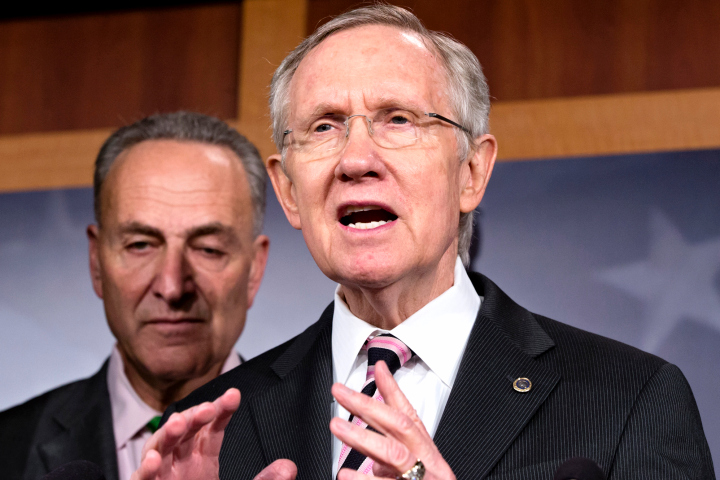That pesky 1st Amendment: Liberals’ gripe with free speech
< < Go Back
Every time the Supreme Court rules in favor of the First Amendment in a campaign-finance case, the left recoils in disgust.
The court’s 5-4 decision in McCutcheon v. FEC is the latest occasion for the rending of garments and gnashing of teeth. The court struck down the limit on the aggregate amount a donor can give to candidates and political-party committees, ruling it incompatible with First Amendment protections for political expression.
The left pronounced itself outraged. Sen. Chuck Schumer (D-N.Y.), who has $11 million in his campaign treasury despite being a de facto senator for life, called the decision “another step on the road to ruination.”
Senate Majority Leader Harry Reid (D-Nev.), who has enough of a fund-raising surplus that he bought jewelry for his donors from his granddaughter, resorted to a thunderous non sequitur in denouncing the decision: “All it does is take away people’s rights because, as you know, the Koch brothers are trying to buy America.”
The First Amendment is for strippers, flag burners, pornographers, funeral protesters and neo-Nazis, but not for people trying to give money to political parties or candidates.
In his decision for the court, Chief Justice John Roberts noted that contributing to a candidate is political participation just like volunteering for a campaign or urging others to vote. “Money in politics may at times seem repugnant to some,” Roberts writes, “but so too does much of what the First Amendment vigorously protects.”
The decision in McCutcheon should have been a slam-dunk. Campaign-finance law limits how much a single donor can give in an election cycle to $5,200 for a federal candidate and $64,800 for a party committee.
The court let these so-called base limits stand on grounds that under the landmark Buckley v. Valeo decision, direct contributions to candidates hold the greatest possibility for creating corruption.
But if you accept the base limits, the aggregate limits on the total anyone can give to candidates in a single cycle ($48,600) and to party committees and PACs in a single cycle ($74,600) make no sense. By the logic of the law, if a contribution to one candidate of $5,200 or less is not corrupting, there should be no fear that a donor giving a couple of dozen candidates that amount will be corrupting. Each of the candidates is receiving the proscribed amount or less.
Once a donor hits the aggregate limit, though, it functions as an outright ban on further donations to candidates or parties — even though these donations aren’t corrupting. This is an impingement of his political rights without any upside of preventing graft.
The critics of the decision object to it partly on egalitarian grounds: Very few donors have the resources to contribute enough to bump up against the aggregate limits, so the decision gives disproportionate influence to a few people.
A free political system always has such disparities. Should Thomas Paine have been silenced, since his incredible rhetorical powers made him more influential than other pamphleteers? Should The New York Times be shuttered, since it exercises more power than almost anyone else in New York?
At the root of the left’s opposition to McCutcheon, and Citizens United before it, is that it reduces governmental control over the political process. That control is taken, ipso facto, to be a good thing.
If the First Amendment gets in the way, so much the worse for the First Amendment.
Remember: The position of the Obama administration in oral arguments over Citizens United was that the government could ban books printed by corporations. Nancy Pelosi, the House minority leader, has proposed amending the First Amendment to give the government more latitude to limit political expression.
More From New York Post:




